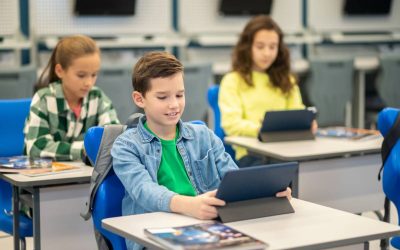Understanding and fostering our children’s multiple intelligences can significantly impact their development. According to psychologist Howard Gardner, who challenged the traditional view of a single, unified intelligence, people possess various types of intelligences that develop and manifest differently. Here’s a brief overview of the types of multiple intelligences and how to enhance them through playful activities:
Types of Multiple Intelligences
- Linguistic Intelligence:
- Description: Involves the ability to use language effectively, both in writing and speaking. It includes understanding, processing, and creating messages.
- Enhancement Activities: Storytelling, reading books, writing poems, and engaging in language-based games.
- Logical-Mathematical Intelligence:
- Description: Involves the ability to solve mathematical problems and reason logically.
- Enhancement Activities: Math games, puzzles, and problem-solving challenges that stimulate logical thinking.
- Spatial Intelligence:
- Description: Involves the ability to understand and manipulate visual and spatial information.
- Enhancement Activities: Building blocks, drawing, and playing with puzzles that require spatial reasoning.
- Musical Intelligence:
- Description: Involves the ability to understand and create music, including recognizing rhythms and melodies.
- Enhancement Activities: Singing, playing musical instruments, and listening to various genres of music.
- Bodily-Kinesthetic Intelligence:
- Description: Involves using one’s body effectively to solve problems or create products.
- Enhancement Activities: Dance, sports, and activities that require physical movement and coordination.
- Intrapersonal Intelligence:
- Description: Involves self-awareness and understanding one’s own emotions, strengths, and weaknesses.
- Enhancement Activities: Reflective journaling, setting personal goals, and engaging in self-assessment activities.
- Interpersonal Intelligence:
- Description: Involves the ability to understand and interact effectively with others.
- Enhancement Activities: Group games, role-playing, and activities that encourage teamwork and communication.
- Naturalistic Intelligence:
- Description: Involves sensitivity to and understanding of the natural environment and living things.
- Enhancement Activities: Nature walks, gardening, and activities that explore and respect the environment.
How to Enhance Multiple Intelligences
- Utilize Playful Activities:
- Incorporate Games: Use games that cater to different intelligences. For example, word games for linguistic intelligence, logic puzzles for mathematical intelligence, and art projects for spatial intelligence.
- Interactive Learning: Engage children in hands-on activities and projects that stimulate their various intelligences while they have fun.
- Customize Learning Experiences:
- Personalize Learning: Tailor activities to align with each child’s unique strengths and interests. This approach ensures that they engage with the material in ways that resonate with their dominant intelligences.
- Diverse Methods: Employ a variety of teaching methods to cater to different learning styles and intelligences, providing a more inclusive educational experience.
- Encourage Exploration:
- Foster Interests: Support children in exploring their interests and talents through relevant activities and experiences.
- Provide Resources: Offer materials and opportunities that align with their strengths, such as musical instruments for those with musical intelligence or art supplies for those with spatial intelligence.
- Promote a Growth Mindset:
- Celebrate Efforts: Recognize and praise the efforts children make in developing their intelligences, regardless of the outcome.
- Encourage Persistence: Support children in overcoming challenges and viewing mistakes as learning opportunities, fostering resilience and growth.
By integrating these approaches into everyday activities, parents and educators can help children develop their multiple intelligences, ensuring a more well-rounded and enriched learning experience. Engaging children in activities that align with their strengths and interests not only makes learning enjoyable but also helps them build essential skills for the future.





